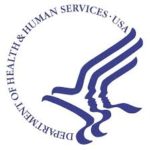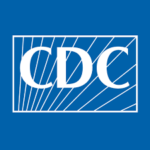The following is the latest health policy news from the federal government for November 15-21. Some of the language used below is taken directly from government documents.
The Incoming Administration
President Trump has nominated Robert F. Kennedy, Jr. for Secretary of Health and Human Services and Dr. Mehmet Oz for Administrator of the Centers for Medicare & Medicaid Services (CMS). Both positions require confirmation by the Senate. Senators will start the process of confirming the President-elect’s cabinet nominees when the new Congress convenes in January.
 Congress
Congress
Funding for the federal government will expire on December 20 and it is still unclear how Congress intends to meet that deadline, whether by passing the federal fiscal year 2025 appropriations bills or, what seems more likely, by passing a short-term or longer-term continuing resolution. A number of health policies that are set to expire on December 31 – including funding for Medicare-dependent hospitals, the Acute Hospital at Home Program, Medicaid DSH cuts, telehealth flexibilities, and others – are expected to be included in whatever spending bill passes.
The next Congress, the 119th, will convene on January 3. House Republicans have agreed to nominate Mike Johnson (LA) for Speaker again and have re-elected Steve Scalise (LA) as majority leader and Tom Emmer (MN) as majority whip. House Democrats re-elected their top three leaders: Hakeem Jeffries (NY) as minority leader, Katherine Clark (MA) as minority whip, and Pete Aguilar (CA) as caucus chair. In the Senate, Republicans elected John Thune (SD) as the first new majority leader in 17 years and chose John Barrasso (WY) as the new majority whip and Tom Cotton (AR) for new Republican conference chairman. Senate Democrats have not yet chosen their leaders for the new Congress.
 Drug Enforcement Administration/Telehealth Prescribing
Drug Enforcement Administration/Telehealth Prescribing
The Drug Enforcement Administration (DEA), in concert with HHS, has issued a third extension of telemedicine flexibilities, through the end of 2025, that permits the remote prescribing of certain controlled medications. During the COVID-19 public health emergency, the DEA and HHS permitted qualified health professionals to prescribe controlled medications (such as buprenorphine) for opioid use disorders, anxiety, attention deficit and hyperactivity disorders, anxiety disorders, and other conditions via telehealth at a time when current guidelines called for at least one personal visit between provider and patient before such drugs could be prescribed. This requirement was eased during the public health emergency but since the end of that period the DEA has twice extended its moratorium on the in-person visit requirement while considering public comments on the advisability of modifying, repealing, or making permanent the new criteria. The DEA continues to evaluate these comments, so in the interim, it has extended the telemedicine flexibilities for another year. Learn more from this Federal Register announcement.
Centers for Medicare & Medicaid Services
- CMS has posted a bulletin for providers updating Medicare deductible, coinsurance, and premium amounts for calendar year 2025. Find the bulletin here.
- CMS has issued an informational bulletin to state Medicaid directors about the extension of Medicaid coverage for substance use disorder treatment and managed care medical loss provisions addressed in the Consolidated Appropriations Act of 2024. The memo explains that the act made permanent the mandatory Medicaid benefit for medications for opioid use disorder; made permanent and amended the state plan option to provide medical assistance for certain individuals who are patients in eligible institutions for mental diseases in which Medicaid benefits generally are not otherwise covered; and made permanent a managed care provision addressing medical loss ratio remittances under Medicaid managed care. Learn more about these and other policy changes from this CMS memo to state Medicaid directors.
CMS has awarded the third 200 of 1000 partially Medicare-funded physician residency slots to enhance the health care workforce and fund additional positions in hospitals serving underserved communities. Go here and scroll down to “Medicare-Funded Physician Residency Positions” to find a link to a direct download zip file listing the newly awarded residency slots.
- CMS has added PrEP for HIV coverage to its “Medicare Preventive Services” resource. Go here to find the relevant HCPCS, CPT, and ICD-10 codes and information about the delivery of services covered by these codes.
- CMS has sent an informational bulletin to state Medicaid and CHIP programs to support states’ efforts to verify eligibility and conduct renewals in a manner that supports program integrity and continuity of coverage for eligible Medicaid and CHIP beneficiaries in compliance with federal regulations. The bulletin reminds states about current requirements and state flexibilities in verifying financial eligibility for Medicaid and CHIP and offers examples to illustrate the application of the various verification methods. Find the CMS bulletin here.
- CMS has sent an informational bulletin to the states detailing how they can use the strategies and techniques they employed to verify Medicaid eligibility during the Medicaid unwinding process to support long-term improvement of their regular state Medicaid eligibility and enrollment processes, including by noting unwinding waivers that will remain in effect into 2025. Learn more from CMS’s informational bulletin to the states. Simultaneous with this bulletin, HHS’s Office of the Assistant Secretary for Planning and Evaluation (ASPE) has published a report concluding that streamlined renewal options for Medicaid beneficiaries, and in particular those that employ ex parte renewal processes, would provide timely and accurate eligibility determinations even after the unwinding process. Learn more from the ASPE report “Evaluating Medicaid Strategies to Streamline Ex Parte Renewals.”
- CMS has posted updated data results for electronic clinical quality measures (eCQMs) in the Hospital Quality Reporting System. Learn more from this CMS notice.
- CMS has approved section 1115 demonstration amendments that authorize Colorado, Hawaii, Minnesota, New York, and Pennsylvania to provide additional years of continuous Medicaid and CHIP eligibility for children beyond the minimum 12 months required by law and will newly provide continuous eligibility to individuals leaving incarceration in Colorado and Pennsylvania. Learn more about the waivers and the specific coverage extensions for the individual states from this HHS news release.
- CMS has published its improper Medicare, Medicaid, and federal exchange payments for FY 2024. They are:
- The Medicare fee-for-service estimated improper payment rate was 7.66 percent or $31.70 billion.
- The Medicare Part C estimated improper payment rate was 5.61 percent or $19.07 billion.
- The Medicare Part D estimated improper payment rate was 3.70 percent or $3.58 billion.
- The Medicaid improper payment rate (comprised of reviews in 2022, 2023, and 2024) was 5.09 percent or $31.1 billion.
- The Children’s Health Insurance Program (CHIP) improper payment rate (comprised of reviews in 2022, 2023, and 2024) was 6.11 percent or $1.07 billion.
- The FY 2024 improper payment rate for the Advance Payments of the Premium Tax Credit program for the federal exchange for benefit year 2022 (January 1 to December 31, 2022) was 1.01 percent or $562.93 million. CMS found that the federal exchange properly paid an estimated 98.99 percent of total outlays, or $55.14 billion, in benefit year 2022.
Learn more about how CMS defines what constitutes and counts “improper” payments, how the latest improper payments compare to those of the recent past, and about steps the agency has taken to address improper payments from this CMS news release. Find additional information about CMS payments and improper payments from HHS’s Fiscal Year 2024 Agency Financial Report.
- The deadline for critical access hospitals to submit a calendar year 2023 hardship exception application for the Medicare Promoting Interoperability Program is November 30. Learn more about the criteria for seeking a hardship exception and how to submit an application for that exception from this CMS notice.
- With access to care a challenge in rural communities, CMS has written to the states to clarify how critical access hospitals may leverage space-sharing arrangements with other health care entities to improve access to additional care and services within the community while maintaining independent compliance with all participation requirements for critical access hospital status. Learn more from this CMS guidance to states about time-share and leased-space arrangements for critical access hospitals.
- CMS has written to state Medicaid agencies to share revised guidance for surveyors of long-term care facilities that includes what it calls “Significant revisions to enhance quality and oversight of the LTC [long-term care] survey process.” A cover memo from CMS to the state agencies summarizes the changes the agency will introduce effective February 25, 2025 and the memo includes an advance copy of a revised state operations manual for surveyors of long-term-care facilities that will take effect at that time. Learn more from CMS’s memo to state agencies and the accompanying manual.
- CMS has sent an informational bulletin to the states with its updated 2025 Supplemental Security Income (SSI) and spousal impoverishment standards and the 2025 resource standards for Medicare Savings Program groups. Find the bulletin here.
- CMS has posted a bulletin describing the 2025 rate update for the home health prospective payment system. Find that bulletin here.
 Department of Health and Human Services
Department of Health and Human Services
- HHS’s Office of the Inspector General (OIG) has found that Medicare improperly paid acute-care hospitals an estimated $190 million over five years for outpatient services provided to hospice patients. In a review of 100 sample claims for services coded for conditions unrelated to patients’ terminal illness, the OIG found that 70 percent of those claims were related to the terminal illness. Learn more from this OIG report.
- HHS’s Substance Abuse and Mental Health Services Administration (SAMHSA) has launched a Behavioral Health Workforce Career Navigator to help current and aspiring behavioral health professionals identify state requirements for a range of behavioral health careers. Learn more about the navigator from this HHS news release and find the navigator itself here.
- HHS’s Office of Information Security and its Health Sector Cybersecurity Coordination Center have published a report about attackers abusing the electronic signature (e-signature) platform DocuSign’s Envelopes API to create and mass-distribute fake invoices that appear genuine, impersonating well-known brands like Norton and PayPal. Unlike traditional phishing scams that rely on deceptively crafted emails and malicious links, these incidents use legitimate DocuSign accounts and templates to impersonate reputable companies, making detection for end users and security tools more difficult. According to the report, the attackers bypass email security protections because the phishing emails originate from an actual DocuSign domain. Learn more about the attacks, patches, mitigation, and workarounds and find additional resources from this agency sector alert.
- HHS’s OIG has published general program guidance for nursing facilities that it views as an updated, centralized source of voluntary compliance program guidance for nursing facilities. Learn more from the OIG’s Nursing Facility Industry-Segment-Specific Compliance Program Guidance.
- The deadline for submitting late reports for the Provider Relief Fund’s reporting period 7 is December 6 for providers that were approved for submitting a late report. The reporting portal opened on November 18. Learn more here.
HHS Newsletters
- CMS – MLN Connects – November 21
- AHRQ News Now – November 19
- HRSA eNews – November 12 (includes funding opportunities)
- HRSA – Organ Procurement and Transplantation Network (OPTN) Modernization Initiative – November update
 Centers for Disease Control and Prevention
Centers for Disease Control and Prevention
The CDC has issued a health alert to report the first case of clade I mpox diagnosed in the U.S. The alert also offers recommendations to clinicians and laboratories about preventing, diagnosing, treating, and reporting mpox cases and directs clinicians to additional resources. Learn more from the CDC’s health alert.
Stakeholder Events
CMS – Long Term Services and Supports Open Door Forum – December 3
CMS will hold an open-door forum for providers of long-term services and supports on Tuesday, December 3 at 2:00 (eastern). Go here to register to participate.
HHS – Office of the Assistant Secretary for Technology Policy – Annual Meeting – December 4-5
HHS’s Office of the Assistant Secretary for Technology Policy will hold its annual meeting in Washington, D.C. on Thursday, December 4 and Friday, December 5. Participants will hear about key issues at the intersection of health care, public health, policymaking, and technology through a variety of keynote speakers and main stage, breakout, and education sessions. Go here for additional information and to register to attend.
CMS – Skilled Nursing Facilities/Long Term Care Open Door Forum – December 5
CMS will hold an open-door forum for skilled nursing home and long-term-care providers on Thursday, December 5 at 2:00 (eastern). Go here to register to participate.
CMS – ESRD Open Door Forum – December 10
CMS will hold an open-door forum for ESRD providers on Tuesday, December 10 at 2:00 (eastern). Go here to register to participate.
CMS – 2024 CMS Optimizing Health Care Delivery to Improve Patient Lives Conference – December 12
CMS will hold a virtual conference that will convene change-makers from the health care community and federal government to share innovative ideas, lessons learned, and best practices that strengthen patient health care delivery and access to high-quality care by reducing the administrative burdens that affect patients and the health care workforce. The conference will be held on Thursday, December 12 at 11:00 (eastern). Go here for further information and to register to participate.
MedPAC – Commissioners Meeting – December 12-13
MedPAC’s commissioners will hold their next public meeting on Thursday, December 12 and Friday, December 13. Information about participating in the meeting and the meeting’s agenda is not yet available but when it is it will be posted here.
MACPAC – Commissioners Meeting – December 12-13
MACPAC’s commissioners will hold their next public meeting on Thursday, December 12 and Friday, December 13. Information about participating in the meeting and the meeting’s agenda is not yet available but when it is it will be posted here.
CMS – Hospital Open Door Forum – December 17
CMS will hold an open-door forum for hospital officials on Tuesday, December 17 at 2:00 (eastern). Go here to register to participate.
CMS – Physicians, Nurses, and Allied Health Professionals Open Door Forum – December 19
CMS will hold an open-door forum for physicians, nurses, and allied health professionals on Thursday, December 19 at 2:00 (eastern). Go here to register to participate.

 CMS has awarded the third 200 of 1000 partially Medicare-funded physician residency slots to enhance the health care workforce and fund additional positions in hospitals serving underserved communities. Go
CMS has awarded the third 200 of 1000 partially Medicare-funded physician residency slots to enhance the health care workforce and fund additional positions in hospitals serving underserved communities. Go 